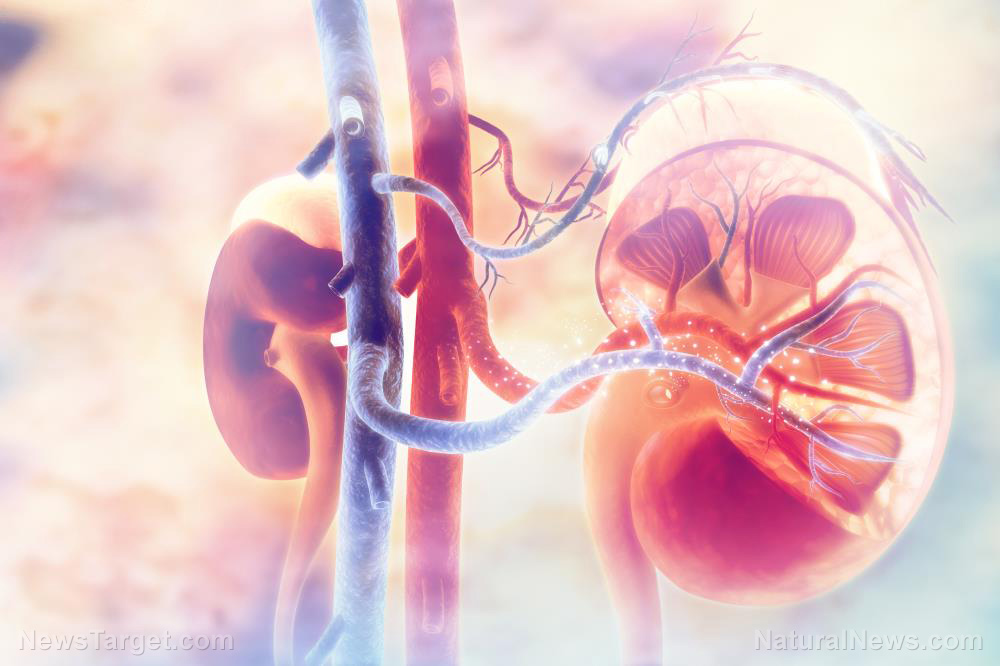Boosting magnesium levels found to help reverse conditions like diabetes and heart disease
08/13/2021 / By Divina Ramirez

Magnesium is an essential mineral that’s necessary to maintain good health. It is involved in many important bodily processes, such as muscle contraction and blood sugar and blood pressure regulation. Because it is important for many bodily functions, having low magnesium levels can lead to serious conditions, such as diabetes and heart disease.
On the other hand, recent studies show that boosting your magnesium levels can help reduce risk factors for diabetes and heart disease, such as inflammation and high blood pressure.
Low magnesium levels linked to diabetes, heart disease
Low magnesium levels have been linked to high blood pressure and a high risk of stroke and heart disease. A study by researchers from the Erasmus University Medical Center Rotterdam in the Netherlands also revealed that magnesium deficiency can increase a person’s risk of dying due to coronary heart disease (CHD) and sudden cardiac arrest. Meanwhile, even a small increase in one’s magnesium levels could lower this risk .
The findings of the study, which appeared in the Journal of the American Heart Association (JAHA), suggest that magnesium supplementation could help protect people from CHD, sudden cardiac death (SCD) and other cardiovascular events. (Related: Reverse cardiovascular disease with cherries.)
Experts believe that magnesium helps protect against heart disease by reducing inflammation, which is associated with atherosclerosis, or the hardening of the arteries. Magnesium also helps improve blood circulation by regulating blood pressure. High blood pressure is a risk factor for heart disease.
When it comes to diabetes, researchers have observed that diabetics tend to have low magnesium levels or are more prone to magnesium deficiency than non-diabetics. A study by researchers from Brazil’s Federal University of Bahia found that 75 percent of people with Type 2 diabetes have magnesium deficiency.
Some studies indicate that magnesium plays a role in the pathogenesis of diabetes by affecting insulin sensitivity. According to clinical trials, low magnesium levels are linked to a higher risk of insulin resistance, a precursor to Type 2 diabetes.
Insulin resistance occurs when there is too much blood sugar circulating inside the body. The pancreas respond to this by releasing more insulin to induce cells to take up sugar from the blood. But over time, cells become resistant to insulin and stop responding to it.
Magnesium is required for both glucose utilization and insulin signaling. This is why metabolic alterations in cellular magnesium can lead to insulin resistance which, in turn, contributes to the onset of Type 2 diabetes.
In addition, a recent study published in Diabetes Research and Clinical Practice found that low serum magnesium is linked to diabetes and high blood pressure. Both these conditions can severely increase your risk of developing heart disease.
Increasing magnesium intake
Magnesium deficiency has been extensively studied for its potential link to diabetes and heart disease. But magnesium deficiency can affect virtually every organ system of the human body.
Therefore, someone with low serum magnesium is likely to experience a wide range of symptoms, such as:
- Loss of appetite
- Nausea
- Vomiting
- Fatigue
- Weakness
- Tingling
- Muscle contractions
- Cramps
- Numbness
- Seizures
- Abnormal heart rhythms
- Personality changes
- Coronary spasms
Having low magnesium levels can also lead to low calcium and potassium levels because magnesium deficiency can disrupt your body’s mineral homeostasis. The U.S. Department of Health and Human Services recommends that adults take about 310–420 milligrams (mg) of magnesium daily to avoid magnesium deficiency.
Here are some of the best sources of magnesium you can add to your diet:
- Pumpkin seeds – provide 156 mg per one-ounce serving
- Chia seeds – provide 111 mg per one-ounce serving
- Almonds – provide 80 mg per one-ounce serving
- Spinach – provides 78 mg per 1/2-cup serving
- Cashews – provide 74 mg per one-ounce serving
- Edamame – provides 50 mg per 1/2-cup serving
- Brown rice – provides 42 mg per 1/2-cup serving
- Plain yogurt – provides 42 mg per eight-ounce serving
- Kidney beans – provide 35 mg per 1/2-cup serving
- Chicken breast – provide 22 mg per three-ounce serving
Magnesium is essential for several bodily processes. As such, being deficient in magnesium may lead to serious health problems, including heart disease and diabetes. To avoid magnesium deficiency, eat foods rich in magnesium as part of a healthy diet or take magnesium supplements.
Learn more about the health benefits of magnesium and other essential minerals at Nutrients.news.
Sources include:
Tagged Under: alternative medicine, diabetes, diabetes cures, diabetes science, heart disease, heart health, high blood pressure, Magnesium, magnesium deficiency, metabolic health, natural cures, natural health, natural medicine, nutrients, remedies, supplements.report
RECENT NEWS & ARTICLES
COPYRIGHT © 2017 NATURAL CURES NEWS





















